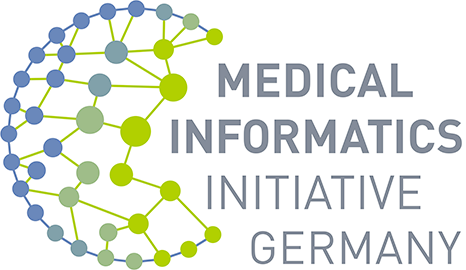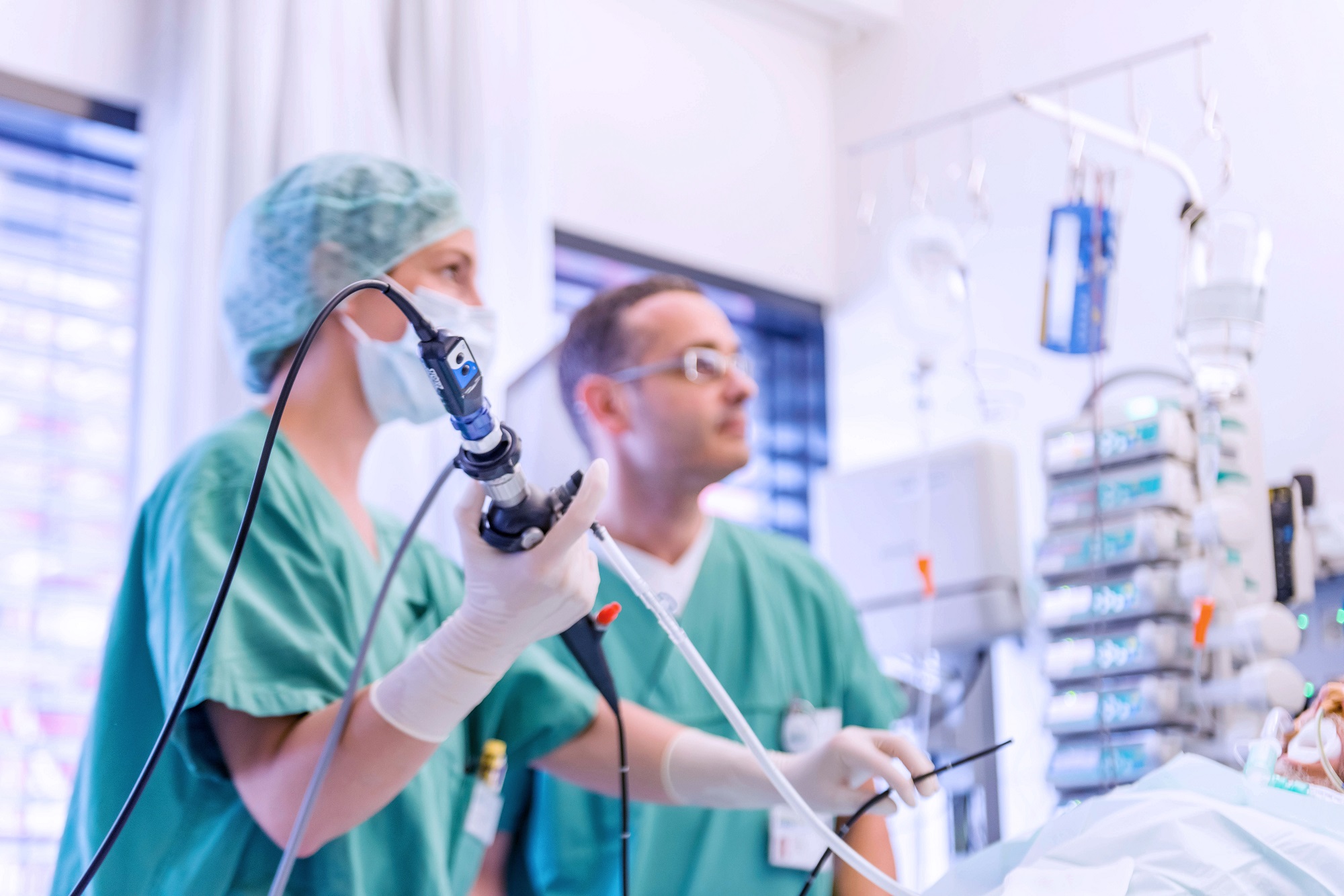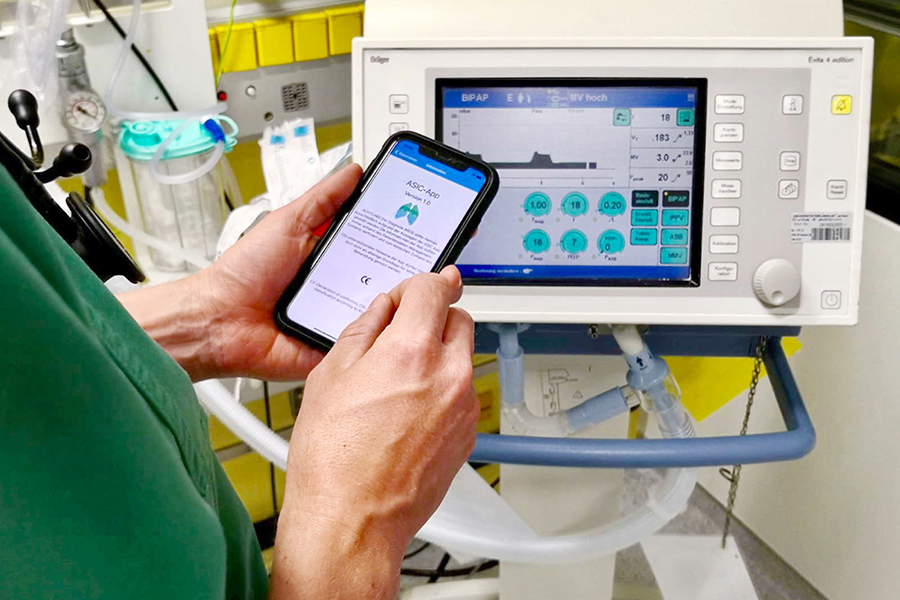ASIC App alerts of acute lung failure
Acute lung failure is a life-threatening disease with a mortality rate of up to 40 percent, in which the lungs can no longer supply the body with sufficient oxygen. Although the vital functions of these patients are closely monitored in intensive care units, ARDS diagnosis is often not made at all or only with a delay. In particular, early stages of the disease are not recognized among the amount of data collected in clinical practice. The SMITH Consortium aims to support medical staff in reliably detecting the first signs of such life-threatening complications earlier.
Under the leadership of the University Hospital Aachen and in cooperation with the University Hospitals of Bonn, Düsseldorf, Halle, Hamburg, Jena, Leipzig and Rostock, a specially developed smartphone app for iOS and Android-based devices will be implemented in the clinical Use Case ASIC, which supports doctors in the participating intensive care units in the diagnosis and therapy of ARDS. This app ensures continuous ARDS monitoring of intensive care patients and the presentation of treatment instructions.
„I am convinced that the data in the Use Case ASIC have a huge potential to help bring more patients back to life using artificial intelligence. With every organ failure, the ultimate goal is to gain time: the earlier we make the diagnosis, the sooner we can initiate a therapy within guidelines and the more patient lives we can save.”
Prof. Dr. Gernot Marx, FRCA 2nd Spokesman SMITH Consortium, Chairman of the Executive Board of the Innovation Center Digital Medicine (IZDM), Head of the Department for Intensive Care Medicine | University Hospital RWTH Aachen
Using the potential of clinical routine data
In addition, the routine data continuously collected in large quantities in intensive care units is used to develop a "virtual patient model". The model is designed to simulate various health conditions of intensive care patients, forecast their development and predict any resulting complications such as acute lung failure. The goal is a self-learning computer system for clinical research and education.
Complementing the ASIC App and the virtual patient model, a diagnostic expert system based on clinical care data is being developed to quantify the risk of potential ARDS for individual patients using machine learning. For the development of this system, the first German cross-location, anonymous research database in intensive care medicine will be established. Together, the ASIC App and the diagnostic expert system will enable the early diagnosis of ARDS and the initiation of an optimized therapy. The aim is to prevent severe concomitant diseases such as organ dysfunction and to reduce the length of time patients spend in intensive care units and hospitals.




